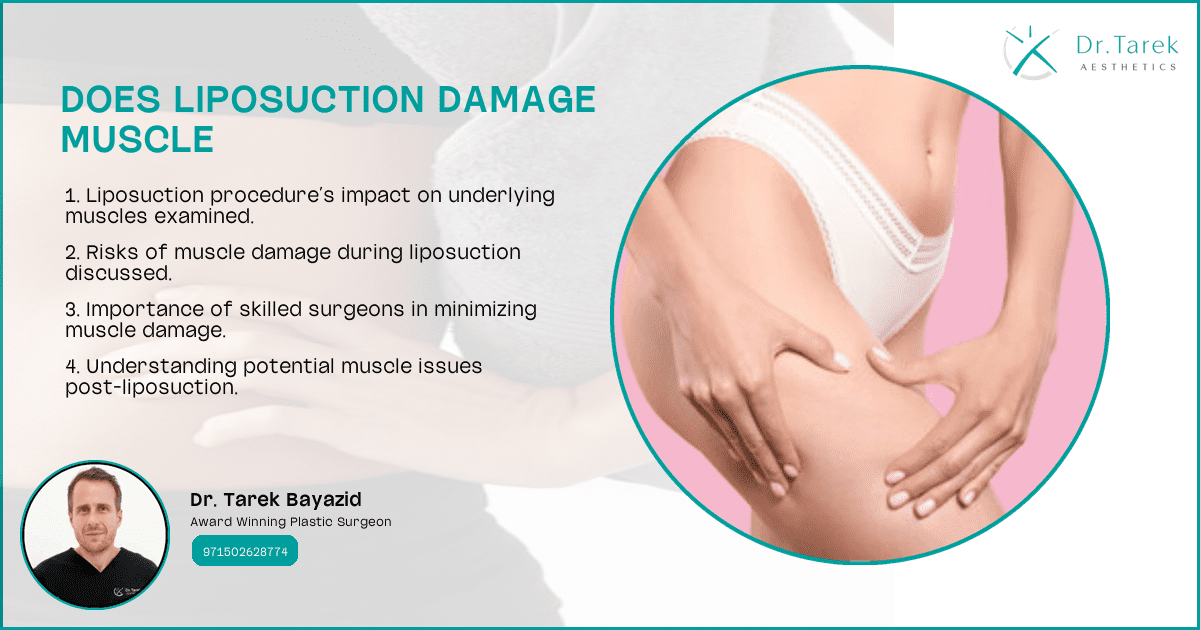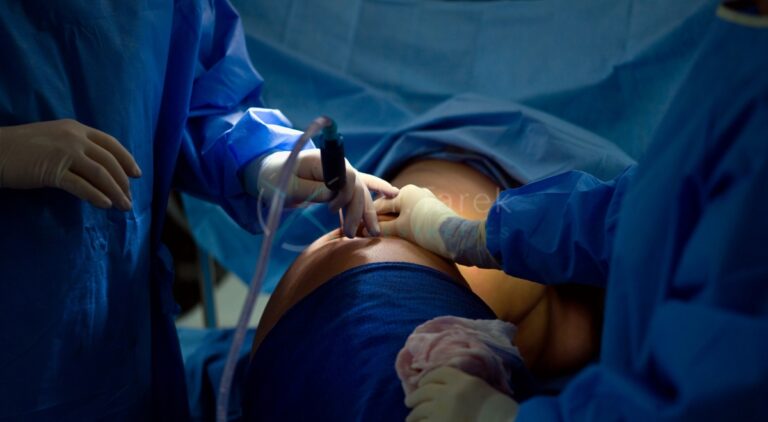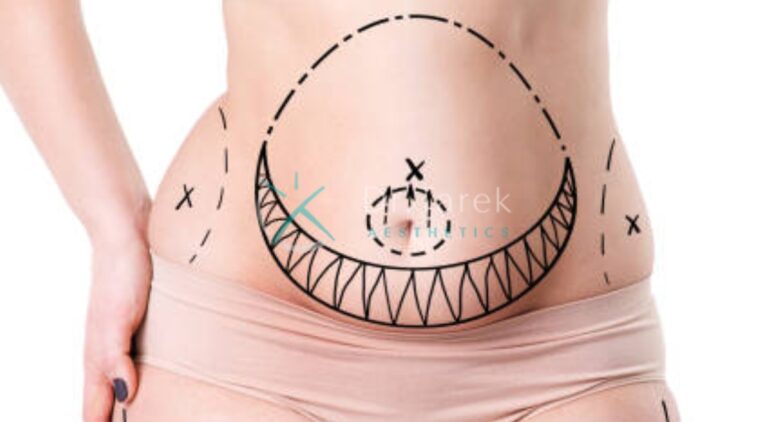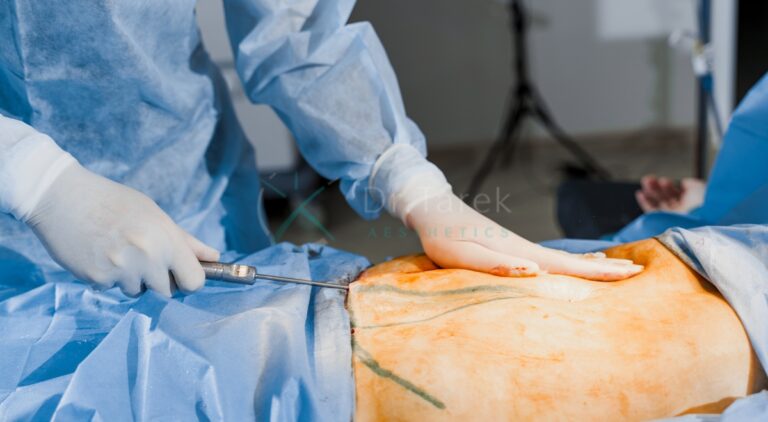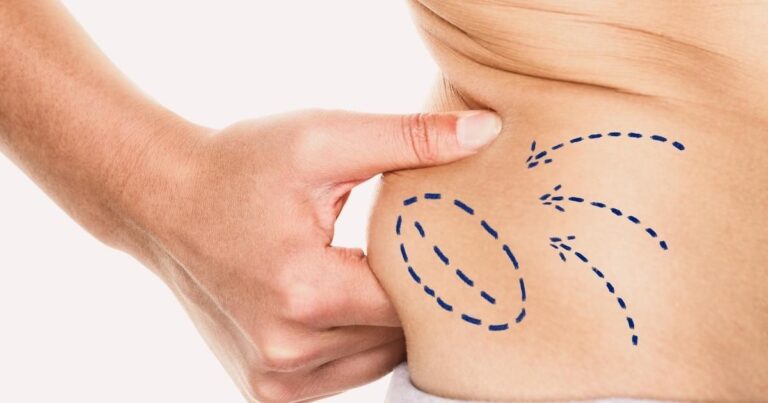Can Liposuction Damage Muscle?
Liposuction is a popular cosmetic procedure aimed at removing excess fat from specific areas of the body. However, many people wonder, “Can liposuction damage muscle?” This article delves into the potential impacts of liposuction on muscle tissue, exploring the science behind the procedure and addressing common misconceptions.
How Liposuction Affects Surrounding Tissues
Liposuction primarily targets fat cells, but it can also affect surrounding tissues. The procedure involves inserting a thin tube called a cannula under the skin to suction out fat. While the goal is to avoid muscle tissue, there is a slight risk of affecting nearby structures.
- Fat cells are the primary target : The procedure is designed to remove fat, not muscle.
- Surrounding tissues may be impacted : Careful technique is crucial to minimize any unintended effects on muscles or other tissues.
Muscle Preservation During Liposuction Procedures
Preserving muscle integrity is a top priority during liposuction. Surgeons use advanced techniques to ensure that muscle tissue remains unharmed.
- Surgeons use precise techniques : Experienced surgeons are skilled in avoiding muscle tissue.
- Muscle preservation is a priority : Protecting muscle health is essential for successful outcomes.
The Science Behind Liposuction and Muscle Interaction
Targeting Fat Cells vs. Muscle Tissue
Liposuction is specifically designed to target fat cells, not muscle tissue. The cannula is maneuvered carefully to avoid damaging muscles.
Book A Consultation With Dr Tarek Bayazid
Top-rated Plastic Surgeon For Liposuction in Dubai
Installment Plan Available
Advanced Liposuction Techniques use special tools to remove fat from the body
these methods help doctors take out more fat with less pain for patients
- Fat cells are selectively removed : The procedure focuses on fat, sparing muscle tissue.
- Muscle tissue is avoided : Surgeons are trained to prevent muscle damage.
Advanced Techniques for Minimizing Muscle Damage
Modern liposuction techniques have evolved to minimize the risk of muscle damage. These methods enhance precision and safety.
- Tumescent liposuction : This technique involves injecting a solution to reduce bleeding and improve fat removal.
- Ultrasound-assisted liposuction : Ultrasound waves help break down fat, making it easier to remove without affecting muscles.
Does Liposuction Damage Muscle? Separating Fact from Fiction
Common Misconceptions About Liposuction and Muscle
There are several myths surrounding liposuction and its effects on muscle tissue. It’s important to separate fact from fiction.
- Myth: Liposuction removes muscle : The procedure targets fat, not muscle.
- Myth: Muscle damage is common : Significant muscle damage is rare with skilled surgeons.
Expert Insights on Muscle Integrity Post-Liposuction
Experts agree that liposuction, when performed correctly, does not compromise muscle integrity. Dr. Tarek, a renowned plastic surgeon, emphasizes the importance of choosing a qualified professional.
- Expert opinion : Skilled surgeons ensure muscle preservation.
- Dr. Tarek’s advice : Choose experienced professionals for optimal results.
Safeguarding Muscle Health During Liposuction
Pre-operative Considerations for Muscle Protection
Before undergoing liposuction, certain pre-operative measures can help protect muscle health.
- Consultation with a surgeon : Discuss concerns and expectations.
- Health assessment : Ensure overall health is optimal for surgery.
Post-operative Care to Maintain Muscle Integrity
Post-operative care is crucial for maintaining muscle integrity after liposuction.
- Follow post-surgery instructions : Adhere to guidelines provided by the surgeon.
- Monitor for complications : Report any unusual symptoms promptly.
Liposuction Treatment Areas and Muscle Considerations
Abdominal Liposuction and Core Muscle Impact
Abdominal liposuction is a common procedure, but it’s important to consider its impact on core muscles.
- Core muscles remain intact : The procedure targets abdominal fat, not muscles.
- Post-surgery exercise : Strengthening exercises can enhance core muscle tone.
Thigh and Arm Liposuction: Balancing Aesthetics and Muscle Function
Liposuction on the thighs and arms requires careful consideration to balance aesthetics and muscle function.
- Aesthetic goals : Achieve desired contour without compromising muscle function.
- Muscle function : Ensure muscle strength is maintained post-procedure.
Recovery and Rehabilitation After Liposuction
Muscle-Friendly Exercise Routines Post-Liposuction
After liposuction, incorporating muscle-friendly exercises can aid recovery and maintain muscle health.
- Low-impact exercises : Walking and swimming are gentle on the body.
- Gradual progression : Slowly increase exercise intensity as recovery progresses.
Nutrition for Optimal Muscle Health During Recovery
Proper nutrition plays a vital role in muscle recovery post-liposuction.
- Protein-rich diet : Supports muscle repair and growth.
- Hydration : Essential for overall recovery and muscle function.
Long-term Effects of Liposuction on Muscle Health
Studies on Muscle Function Years After Liposuction
Long-term studies indicate that liposuction does not adversely affect muscle function.
- Research findings : Muscle function remains stable post-liposuction.
- Long-term health : Regular exercise supports muscle health.
Maintaining Muscle Mass and Strength Post-Procedure
Maintaining muscle mass and strength after liposuction involves a combination of exercise and nutrition.
- Strength training : Helps preserve muscle mass.
- Balanced diet : Supports overall health and muscle maintenance.
In conclusion, while the question “Can liposuction damage muscle?” is common, the procedure is designed to target fat, not muscle tissue. With skilled surgeons and advanced techniques, the risk of muscle damage is minimal. Proper pre-operative and post-operative care further ensures muscle health, allowing individuals to enjoy the aesthetic benefits of liposuction without compromising muscle integrity.
FAQ’s
How deep does liposuction go?
Liposuction typically targets subcutaneous fat, which lies just beneath the skin. The depth varies depending on the area being treated and the amount of fat to be removed. Surgeons carefully control the depth to avoid affecting deeper tissues.
Can liposuction cause muscle weakness?
Liposuction does not cause muscle weakness. The procedure targets fat, and muscle strength is preserved. Maintaining muscle strength involves regular exercise and proper nutrition.
Does liposuction affect muscle tone?
Liposuction does not directly affect muscle tone. The procedure targets fat, leaving muscle tissue intact. However, maintaining muscle tone requires regular exercise and a healthy lifestyle.
